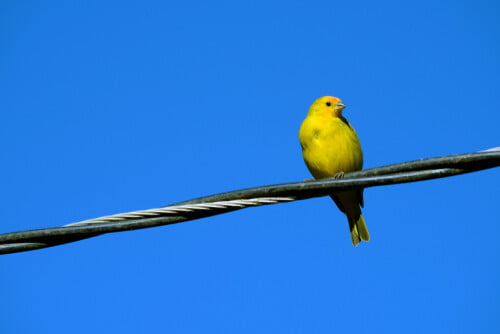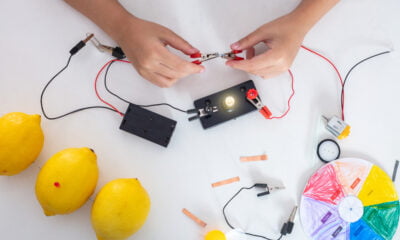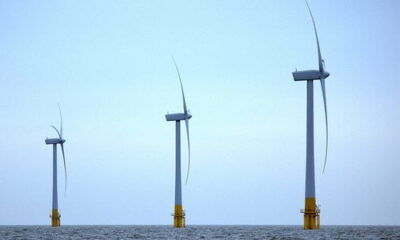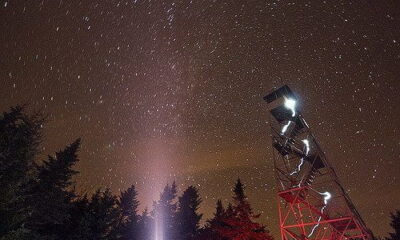Over the last two decades, the effect of wildlife on power networks – and equally, the effect of power networks on wildlife – has become increasingly high profile. Not just amongst the utility companies that suffer outages as a result, but also within environmental groups worldwide.
The challenge is in the name. It is not possible to have any control over the actions of the wildlife that come into contact with power networks because they are just that – wild. So, it’s essential instead that utility companies put the necessary safeguards in place, to ensure that any adverse effects are minimized for both parties.
Financial pressures placed on the global industry over the past 20 years mean substations are reducing costs by making equipment that is smaller and more compact. However, utilities with smaller flashover distances present a risk to wildlife and therefore the risk of network interruptions is also increased.
Wildlife biologist Rick Harness of EDM International put it like this in a recent interview:
“As power lines proliferate across the globe, animal incidents will grow unless electric facilities are designed properly. Fortunately, we have methods and products to greatly eliminate such problems. Helping utilities to build animal-friendly structures is not only beneficial to the animals, but good for the utility companies because they reduce outages. Reducing outages saves money for both the utility and the consumers, and reliability also lessens customer complaints.”
Rick has definitely hit the nail on the head here, particularly from the utility companies’ perspective – and the importance of finding a solution is highlighted even further by these fairly unequivocal industry statistics:
- There are tens of thousands of outages caused by wildlife per year
- The cost of a single outage can run into hundreds of thousands of dollars
- Potential fines for not adequately protecting wildlife can be in excess of $500,000
- The global cost of wildlife induced outages per year is more than $10 billion
What can be done to improve the situation?
It’s widely understood that the protection of wildlife and power grids should go hand in hand – and so companies like TE Connectivity have been designing Wildlife and Asset Protection products for over 30 years. TE in particular understands that financial pressures on substations should not be a reason for wildlife to be endangered, so has developed a range of innovative new product solutions that solve both issues without compromise – incorporating key design factors that go beyond electrical functionality, and factor in the somewhat unpredictable behavior of wildlife.
Looking at substations in particular, these include equipment with very short ‘flashover’ distances – meaning that a live part with an electrical current running through it, and a grounding piece with no electrical current, are very close together. Systems like this were not designed with wildlife interference in mind – and so without any type of protective equipment, if an animal touches both the live and earth components simultaneously they will be electrocuted. This leads to two outcomes, neither of which are good – an outage in the power network and unfortunately, usually a dead bird or animal. In addition, the death of a smaller animal or bird could attract larger predators into the substation which would proliferate the risk of an outage due to their larger size.
So, it’s clear to see what benefits can be gained by having the right protective equipment in place, and this is where TE Connectivity comes in. Its animal guards are covers that add obstacles within the power infrastructure – effectively increasing the distance between live and ground components, and hence avoiding a flashover taking place altogether. In recent years TE has developed hot stickable designs to ease the installation and removal process, and enhance safety and range taking: https://www.te.com/usa-en/videos/industrial/energy-bisg-squirrel-guard.html.
New design ideas combat long-term challenges
Elsewhere in the power network, another common issue revolves around bushing covers – cylindrical cages used to encase equipment connections and live wires which are potentially hazardous to wildlife – to prevent disconnections as well as general wear and tear. While the primary objective of a bushing cover is to protect wildlife, some designs can cause new problems.
In some applications, bushing covers need to be re-opened to inspect the HV connector inside; however, not all products are designed for re-opening, meaning the closing latches are often damaged in the inspection process. On the other hand, if the re-closure is not robust and leaves a gap, then small birds, insects, and snakes will be able to enter and nest.
In some cases, utility companies have stopped using bushing covers altogether, due to the problems they cause with animal infestation. But this in turn leads to other issues, due to wildlife coming into contact with live wires – resulting again in power outages, and the injury or death of the animal in question.
To mitigate both of these issues, TE Connectivity has developed a new design of bushing cover which is made up of a latticework cage structure – enabling the inspection to take place without the cover having to be opened while still providing the same level of protection from live wires and connections. This design also features robust integrated hinges which can be reliably opened and re-closed without any risk of improper closure or damage. The lattice structure also means these types of covers can be visually inspected to ensure there are no issues with damage of the connector inside – and allows the linesman to safely determine if there are any dangerous snakes or insects inside before opening the housing.
These are just two examples of ways in which utility companies can reduce outages by protecting against wildlife coming into contact with their networks, but many others are also available. When it comes to minimizing power outages, and protecting the birds and animals which often come into contact with power networks, TE Connectivity has created a comprehensive and customizable product range. One which addresses specific issues identified around animal-related outages, and offers utility companies a total solution to the challenges they face in this area.
To find out more about TE Connectivity’s Wildlife and Asset Protection products, please visit www.te.com/wap.
Source reference: An Interview with Rick Harness of EDM International by Maggie Grimason – http://nmavianprotection.org/an-interview-with-rick-harness-of-edm-international/


 Environment12 months ago
Environment12 months agoAre Polymer Banknotes: an Eco-Friendly Trend or a Groundswell?

 Features11 months ago
Features11 months agoEco-Friendly Cryptocurrencies: Sustainable Investment Choices

 Features12 months ago
Features12 months agoEco-Friendly Crypto Traders Must Find the Right Exchange

 Energy11 months ago
Energy11 months agoThe Growing Role of Solar Panels in Ireland’s Energy Future





























